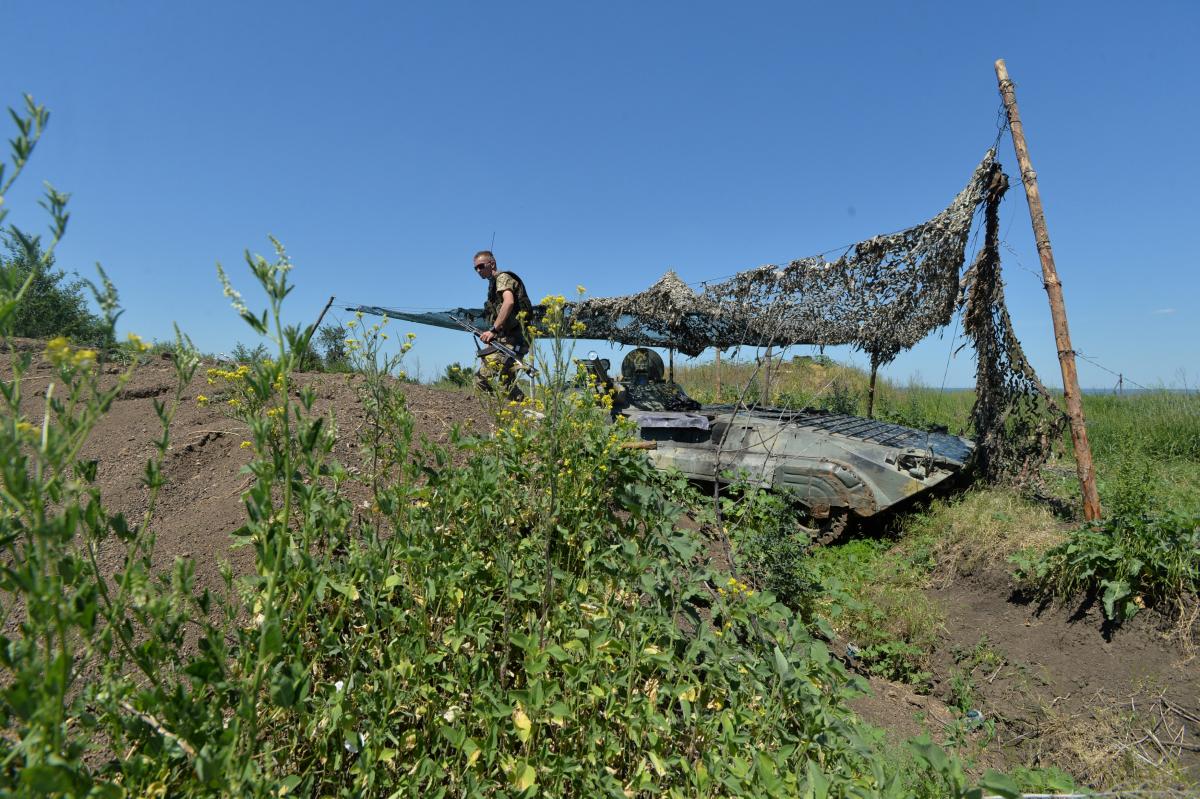
The Kremlin views its army as a tool to satisfy foreign policy ambitions, so issuing an order to invade another state is only a matter of time and opportunity for Moscow.
"At the present stage of hybrid war, Russia has deployed a military grouping close to Ukraine borders, which includes two new armies and an army corps: the 20th Army has already been practically formed. It consists of a 24,000-strong pair of divisions. There's also a 45,000-strong 8th Army, including the 1st and 2nd army corps deployed in the temporarily occupied territories of Donbas; and the 22nd Army Corps as part of Russian navy's coastal forces consisting of 9,000 servicemen. These units will become fully operational in the near future," Kondratiuk wrote in an oped for ZN.ua.
Russia's strategic nuclear forces has been armed with the latest weapons by 83%, aerospace forces – by 75%, airborne troops and naval forces – by over 63%, and land forces – by 50%. Availability of modern command and control facilities in the army stands at about 67%, the intelligence chief wrote.
"Moscow is creating long-term threats, including through developing a new military base near the Ukraine borders (in Rostov, 60 km away from the border) to permanently host units of the newly formed 150th motorized rifle division," Kondratiuk noted.
Read alsoRussian security agencies using religion as tool to meddle in Ukraine – intelligence chief
For the aims of political pressure on Ukraine and the West, the Kremlin intends to use the strategic military exercises Kavkaz-2020, where "the scenario will be worked out of an offensive on the neighboring countries".
The total number of troops involved in maneuvers scheduled for September this year will amount to at least 120,000, along with 3,000 armored combat vehicles, nearly 300 aircraft, 250 helicopters, 50 warships, and up to five submarines.
A possible scenario for the exercise is also the use of troops to resolve the issue of freshwater supply to the temporarily occupied Crimea. "Russia's armed forces could potentially, under a far-fetched pretext, deploy deep into the territory of Ukraine's Kherson region in order to seize control over the dam of the North Crimean Canal," wrote Kondratiuk.
In general, Russia has already turned the peninsula into a solid military base, the top intel official said.
The adoption of a strategic decision to conduct in one form or another an offensive military operation against Ukraine (in particular in the area of the North Crimean Canal) is limited by the falling prices on global oil and gas markets and decreasing revenues to the Russian budget; Moscow's hopes of exploiting COVID-19 to reset relations with the West; the upcoming local elections in Ukraine amid Moscow's hopes to strengthen the presence of pro-Russian forces in Ukrainian politics; the shifting of military resources toward the Turkish-Russian confrontation in Syria and Libya, as well as indirectly – within the framework of the Armenian-Azerbaijani conflict; and Russia's local elections in September 2020, against the backdrop of Vladimir Putin's popular rating dropping to 23% and a heightened protest potential.
The Kremlin is also being held back from ordering an offensive by the vicissitudes of the U.S. presidential campaign and the developments in the Donbas settlement talks in the Minsk and Normandy formats.
"According to our estimates, the complex influence of these factors makes the scenario of military aggression against Ukraine in the fall of 2020 untimely for the Kremlin," the SZR head reported.
Read alsoUkraine's top intelligence official talks Russian threats in media domain
However, the agency's analysis shows that "in the long term, Russian efforts in relation to Ukraine may transform into a large-scale military operation with the seizure of more Ukrainian territories".
The following factors may contribute to this:
- The need to divert public attention from a number of internal problems (a plunging popular rating of the Russian government due to the deteriorating standards of life, a rapid economic decline, a weakening of the power vertical, and the opposition of regional elites);
- The need to address socio-economic problems in the temporarily occupied Crimea (water supply, failure of the tourist season); and
- Our leading international partners focusing exclusively on their internal problems (complex electoral processes, radical escalation of social, demographic and economic issues, refugees, or terrorism).
Earlier, despite the fact of Russian aggression being waged against Ukraine for the sixth year already, deputy chief of Russian diplomacy Andrei Rudenko claimed Russia has no aggressive intentions in relation the neighboring country.

